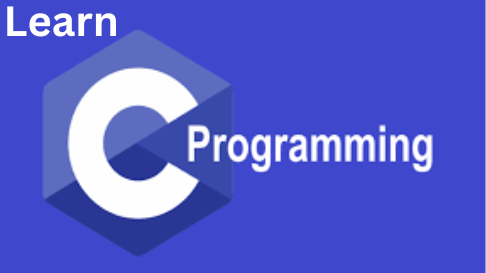What is Functions in C
In c, we can divide a large program into the basic building blocks known as function. The function contains the set of programming statements enclosed by {}. A function can be called multiple times to provide reusability and modularity to the C program. In other words, we can say that the collection of functions creates a program. The function is also known as procedureor subroutinein other programming languages.
Example:
c#include <stdio.h>
// Function declaration (prototype)
int add(int a, int b);
int main() {
int num1 = 5;
int num2 = 7;
// Function call
int sum = add(num1, num2);
printf("The sum of %d and %d is %d\n", num1, num2, sum);
return 0;
}
// Function definition
int add(int a, int b) {
int result = a + b;
return result;
}Here are some key characteristics and components of functions in C:Function Declaration: Before you can use a function in your program, you typically declare it. The function declaration specifies the function's name, return type, and parameters (if any). For example:
int add(int a, int b);Function Definition: The function definition contains the actual code that defines what the function does. It includes the function's name, return type, parameters, and the statements that make up the function's body. For example:
Function Call: To use a function in your program, you call it by its name, passing the required arguments (if any). For example:
int result = add(5, 3);Advantages of functions in C.
Modularity: Functions allow you to break down a program into smaller, more manageable modules. Each function can perform a specific task or subtask, making the code easier to understand and maintain. This modular approach also facilitates code reuse in different parts of the program or even in other programs.
Code Reusability:Once you've defined a function, you can call it multiple times from various parts of your program. This reduces code duplication and makes it easier to maintain and update your code. Functions can be reused in different programs if they are designed to be generic and independent of the specific context.
Abstraction: Functions provide a level of abstraction. When you call a function, you don't need to know the internal details of how it accomplishes its task. You only need to understand its interface (function signature) and what it returns. This abstraction simplifies the complexity of your code.
Readability: Breaking down your code into functions with meaningful names makes your code more readable and self-documenting. A well-named function describes its purpose, making it clear what that part of the code does.
Ease of Debugging: Functions can be tested and debugged individually, which simplifies the debugging process. You can isolate issues within a specific function without having to examine the entire program.
Function Aspects
There are three aspects of a C function.Function Declaration: Functions must be declared before they are used in your program. A function declaration specifies the function's name, return type, and parameters (if any). It tells the compiler about the function's existence and signature. For example:
cint add(int a, int b); // Function declarationFunction Definition: The function definition contains the actual code that defines what the function does. It includes the function's name, return type, parameters, and the statements that make up the function's body. For example:
cint add(int a, int b) { // Function definition int sum = a + b; return sum; }Function Call: To use a function in your program, you call it by its name, passing the required arguments (if any). The function call invokes the function's code, and it can return a value (if it's not a void function). For example:
cint result = add(5, 3); // Function callReturn Statement: Functions can return a value using the return statement. The return type specified in the function declaration indicates the type of value that the function must return. In the add function example, the return sum; statement returns an integer value.
Function Parameters: Functions can accept parameters (also known as arguments) that allow you to pass data to them. Parameters are declared in the function declaration and definition and are used within the function's body. For example:
cint multiply(int x, int y) { int product = x * y; return product; }Function Overloading: C does not support function overloading, which means you cannot define multiple functions with the same name but different parameter lists. Each function must have a unique name.
Function Prototypes: It's a good practice to include function prototypes (declarations) at the beginning of your program or in header files to let the compiler know about the functions you intend to use. This allows you to call functions before their actual definitions appear in the code.
c// Function prototype int add(int a, int b); int main() { int result = add(5, 3); // Function call before definition return 0; }Recursion: Functions can call themselves, a concept known as recursion. Recursive functions are useful for solving problems that can be broken down into smaller, similar subproblems.
Function Scope: Variables declared within a function have local scope, meaning they areonly accessible within that function. This helps prevent naming conflicts with variables in other parts of the program.
Function Modifiers: C provides function modifiers like static and inline that affect the behavior and visibility of functions
b. inline functions suggest to the compiler that the function's code should be inserted directly at the call site to improve performance.a.static functions are limited to file scope, making them accessible only within the source file where they are defined.SN C function aspects Syntax 1 Function declaration return_type function_name (argument list); 2 Function call function_name (argument_list) 3 Function definition return_type function_name (argument list) {function body;}



.png)
.png)
.png)

0 Comments